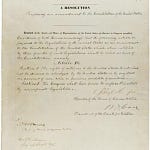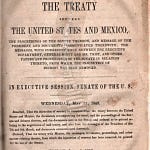On this day in history, September 5, 1774, about 9 miles as the crow flies from where I’m writing this, the first Continental Congress convened to discuss the Intolerable Acts of 1774.
On September 5, 1774, the First Continental Congress convened at Carpenters' Hall in Philadelphia, marking a pivotal moment in America's journey to independence. Representatives from twelve of the thirteen American colonies gathered to deliberate on the future of the colonies amidst escalating British aggression. Notable figures such as Samuel Adams, George Washington, and John Adams were among the delegates who discussed potential strategies, including boycotting British goods to assert the rights of the American colonists.
This historic assembly was a response to the Coercive Acts, or the Intolerable Acts as they were known in America, which were implemented by the British Parliament to reassert control over the colonies following the Boston Tea Party. These acts had severe repercussions, including the closure of Boston Port and the revocation of the Massachusetts Charter. The colonies united in solidarity, with goods being sent to Massachusetts from as far as Georgia, and calls for a continental congress echoing across nine colonies by late spring 1774.
Virginia played a significant role, with its Committee of Correspondence initiating the call for the congress. Delegates were elected through various means, including colonial legislatures and committees of correspondence. George Washington, who was elected at the First Virginia Convention, was a staunch supporter of using non-importation as leverage against British policies, a stance he had maintained since 1769.
During the congress, Peyton Randolph was appointed as the president, and one of the first resolutions passed was the endorsement of the Suffolk Resolves, which encouraged citizens to disobey the Intolerable Acts and foster a spirit of resistance. The delegates also embarked on drafting the Continental Association, a policy that aimed to unify the colonies economically by ceasing British imports and exports, enforced by local and colony-wide committees of inspection.
The congress was not without its challenges, as delegates grappled with defining American rights and grievances, and debating Britain's right to regulate trade in the colonies. A significant proposal during this time was Joseph Galloway's Plan of Union, which sought to establish a collaborative relationship between the American colonies and Britain, though it was narrowly defeated.
As the congress progressed, the delegates formulated a Declaration of Rights and Grievances, emphasizing the people's right to participate in legislative councils. This period of intense discussion and planning culminated in the decision to convene a Second Continental Congress the following spring, a move that indicated the escalating tensions and the looming possibility of conflict with Britain. This gathering was not just a forum for dialogue but a precursor to the unity and resistance that would characterize the American Revolution, setting the stage for a historic change in the relationship between the colonies and the British Empire.
A little bit of inside legal industry baseball to start off the new week: Miguel Zaldivar has been reappointed as the CEO of global law firm Hogan Lovells for a second four-year term, extending his leadership until 2028. Since assuming the role in 2020, Zaldivar has guided the firm to record financial outcomes in 2021, despite the general decline in demand in the legal sector. The firm's board chair, Marie-Aimée de Dampierre, praised Zaldivar's visionary strategy and leadership, which she believes will foster further success. Last year, the firm reported over $2.4 billion in gross revenue, positioning it among the top 15 law firms in the US. However, this was a 6.7% decrease from the 2021 record revenue, a dip Zaldivar attributes to a slump in M&A transactions. Looking ahead, Zaldivar anticipates a robust financial performance in 2023, backed by a strong balance sheet. While not actively seeking mergers following the stalled talks with Shearman & Sterling, Zaldivar mentioned the firm remains open to suitable opportunities and is welcoming of high-performing teams joining the firm. Transitioning to a full-time managerial role was initially challenging for Zaldivar, but he now thoroughly enjoys his position as CEO.
Hogan Lovells Leader Miguel Zaldivar Tapped for Second Term
The European Union is gearing up to implement its largest crackdown on anti-competitive practices in the digital sector, a move that might ignite fresh legal disputes between regulators and major tech companies. The forthcoming Digital Markets Act (DMA), set to be enforced early next year, will introduce stringent regulations to prevent dominant firms from monopolizing new markets. This includes prohibiting platforms from favoring their own services and restricting the misuse of data collected from third-party vendors.
By September 6, the EU antitrust regulators are expected to unveil a list of services, potentially including giants like Google Search, Apple's App Store, Amazon's marketplace, and Facebook, which will be governed by these new rules. These companies have begun dialogues with EU officials, expressing concerns over the scope of the regulations and potential compliance challenges. Post the announcement, the companies will have a six-month window to align their services with the new guidelines or to initiate legal challenges against the regulatory decisions. However, experts believe that the platforms might find it difficult to present a valid argument in court if they meet the criteria specified in the DMA.
Big Tech Braces for EU’s Biggest Antitrust Crackdown
The impeachment trial of Texas Attorney General Ken Paxton, a prominent conservative figure aligned with former President Donald Trump, is set to commence, spotlighting allegations of office abuse and bribery linked to his relationship with donor Nate Paul. Paxton, who has been embroiled in scandals since assuming office in 2015, faces accusations of using his position to benefit Paul, a real estate investor, amidst an FBI investigation and financial troubles. The trial is expected to delve deep into Paxton's personal life, including an extramarital affair which he allegedly went to great lengths to conceal, including using secret communication methods and clandestine meetings facilitated by Paul.
The House impeachment managers have amassed nearly 4000 pages of evidence, indicating that Paxton accepted significant favors from Paul, including home remodeling materials and employment for his mistress in Austin. The trial, anticipated to last two to three weeks, will be presided over by Lt. Gov. Dan Patrick, a Paxton ally. Paxton has denounced the impeachment as a political sham and maintains his innocence. The unfolding scandal has significantly impacted Paxton's approval ratings, especially among the conservative Christian base that has historically supported him due to his stance on family values and Christian principles. The trial is expected to be a pivotal moment in Texas politics, potentially altering the trajectory of Paxton's career and the political landscape in the state.
What to know about Texas Attorney General Ken Paxton's impeachment trial
Ken Paxton’s affair will be focus of impeachment trial | The Texas Tribune
Texas attorney general Paxton could lose his job in impeachment trial | Reuters
Peter Navarro, a former economic adviser to ex-President Donald Trump, is set to face trial on Tuesday over two misdemeanor counts of contempt of Congress. Navarro, who had also been a part of the COVID-19 task force, declined to testify or furnish documents to the congressional committee investigating the January 6, 2021, Capitol attack. He has pleaded not guilty to the charges, asserting that his refusal was based on Trump's invocation of executive privilege, a legal principle that protects certain White House communications from being disclosed. However, U.S. District Judge Amit Mehta, overseeing the trial, criticized Navarro for not providing specific details about his communication with Trump regarding the testimony and rejected Navarro's request to use a phone call with Trump as evidence during the trial. If convicted, Navarro could face a jail term ranging from 30 days to one year and/or a fine up to $100,000 for each count. This case follows a similar conviction of another former Trump adviser, Steve Bannon, on contempt charges in 2022.
Ex-Trump White House adviser Navarro heads to trial over contempt charges | Reuters
And look, down in that culvert, there is something staring back at us. Why, why, why it’s this week’s column – it must be column Tuesday! And on a Tuesday!
In this weeks column I discuss Massachusetts becoming the eighth state to implement a universal free lunch program for school children, financed by a 4% tax on individuals earning over $1 million annually, a policy expected to generate about $1 billion each year. This move comes as states are establishing their own lunch programs following the expiration of the federal initiative that began during the Covid-19 pandemic. While the program aims to prevent student hunger, critics argue it represents unsound tax policy, potentially encouraging capital flight and tax avoidance.
Despite having sufficient surplus to fund the lunch program without the new tax, Massachusetts chose to levy it, possibly politicizing the provision of student lunches and tying it to the fluctuating popularity of wealth redistribution concepts. I suggest that a more stable solution should be sought at the national level, as the disparity in educational spending between states could jeopardize the consistent provision of student lunches. Reflecting on the successful federal free lunch program during the pandemic, I advocate for a national approach to address the issue, and caution against the risks of politicizing student nutrition through state-level policies. This is not a place for the state “laboratories of democracy” to experiment with how little support the student body can get by with. We have a solution, it is the policy that was just permitted to expire.
States That Tax Rich to Pay for School Lunches Make Risky Move













